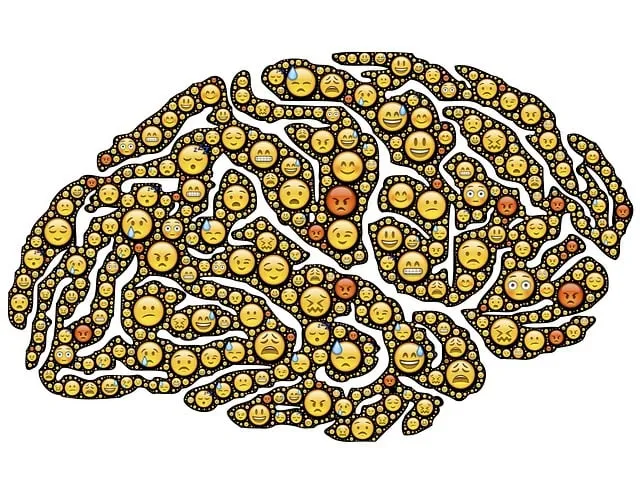Kaiser, a leading healthcare provider in Colorado Springs, offers comprehensive mental health services with a strong focus on cultural competency. Through tailored programs addressing trauma and cultural barriers, they ensure diverse patients receive compassionate, effective care, improving patient engagement and outcomes. Their initiatives like Mental Health Education Programs and podcast series cater to unique community needs, fostering resilience and promoting mindfulness. Structured, holistic training for healthcare providers equips them to offer sensitive mental health services, building trust and encouraging adherence to treatment plans.
Healthcare provider cultural competency training equips professionals with the skills to deliver empathetic, effective care in diverse settings. This article explores such training, focusing on its importance in improving patient outcomes, especially within communities like Colorado Springs where organizations like Kaiser play a pivotal role in mental health services. We’ll delve into best practices and real-world impacts, examining how comprehensive programs enhance cultural understanding and access to quality care for all.
Learn more about Kaiser’s initiatives in this realm and discover why such training is crucial for modern healthcare.
- Understanding Cultural Competency Training for Healthcare Providers
- The Role of Kaiser in Colorado Springs' Mental Health Services
- Benefits and Impact on Patient Care and Outcomes
- Implementation and Best Practices for Effective Training Programs
Understanding Cultural Competency Training for Healthcare Providers

Cultural competency training is an essential aspect of modern healthcare, especially for providers serving diverse communities like Colorado Springs. This educational approach equips healthcare professionals with the skills to deliver culturally sensitive and effective care. By understanding the unique cultural backgrounds and needs of their patients, providers can improve patient engagement, satisfaction, and health outcomes.
At Kaiser, a leading healthcare provider in Colorado Springs, mental health services play a significant role in their comprehensive care offerings. Recognizing the importance of cultural sensitivity, Kaiser incorporates Mental Health Education Programs Design that focus on trauma support services. These programs aim to foster emotional healing processes by addressing cultural barriers and promoting understanding among healthcare teams. Such initiatives ensure that patients from various cultural backgrounds receive tailored, compassionate care.
The Role of Kaiser in Colorado Springs' Mental Health Services

In Colorado Springs, Kaiser plays a pivotal role in providing mental health services to the community. As a leading healthcare provider, Kaiser offers comprehensive care that includes both primary and specialized mental health support. Their presence significantly contributes to improving mental wellness coaching programs development within the region, ensuring residents have access to essential resources for their psychological well-being.
Beyond traditional medical services, Kaiser focuses on crisis intervention guidance, risk management planning for mental health professionals, and tailored support for diverse communities. By integrating these initiatives, they foster a more robust and responsive mental health ecosystem in Colorado Springs. This approach not only addresses immediate crises but also promotes long-term resilience and overall community mental wellness.
Benefits and Impact on Patient Care and Outcomes

Cultural competency training is a game-changer when it comes to improving patient care and outcomes, especially in diverse communities like Colorado Springs. By equipping healthcare providers with the skills to understand and appreciate different cultural backgrounds, beliefs, and values, patients from various ethnic and social groups receive more personalized and effective treatment. This approach not only enhances patient satisfaction but also promotes better health outcomes.
When healthcare providers are culturally competent, they can address specific needs and concerns unique to each patient. For instance, this training enables caregivers to provide mental health services with sensitivity, especially when dealing with communities that may have limited access to such resources as does Kaiser offer in Colorado Springs. It also facilitates open communication, reduces miscommunication gaps, and promotes trust between patients and their healthcare teams. As a result, patients are more likely to adhere to treatment plans, practice self-care, and employ stress reduction methods taught by their providers, ultimately leading to better burnout prevention strategies for healthcare providers.
Implementation and Best Practices for Effective Training Programs

Effective cultural competency training for healthcare providers requires a structured and holistic approach to ensure impactful learning. Implementation strategies should include diverse teaching methods such as interactive workshops, case studies, role-playing scenarios, and multimedia resources. These engaging tactics cater to various learning styles and reinforce key concepts. Regular feedback sessions and peer discussions are vital components that allow trainees to reflect on their experiences and apply newfound knowledge in real-world settings.
Kaiser’s commitment to addressing mental health challenges in Colorado Springs exemplifies best practices in action. Their Mental Wellness Podcast Series Production offers valuable insights into cultural sensitivity, particularly when discussing diverse communities’ unique mental health needs. Similarly, Mental Health Policy Analysis and Advocacy initiatives highlight the importance of policy changes to improve access to care. Encouraging mindfulness meditation practices within these training programs further demonstrates a balanced approach to overall mental wellness, aligning with current healthcare trends.
Healthcare provider cultural competency training, as demonstrated by Kaiser’s initiatives in Colorado Springs, significantly enhances patient care and outcomes. By equipping providers with the knowledge and skills to navigate diverse cultural contexts, these programs foster more inclusive and effective mental health services. Kaiser’s role in Colorado Springs serves as a model for organizations across the nation, highlighting the transformative potential of robust cultural competency training. Through continuous evaluation and best practices implementation, healthcare systems can ensure their staff is prepared to meet the unique needs of every patient, ultimately improving access to quality care.






